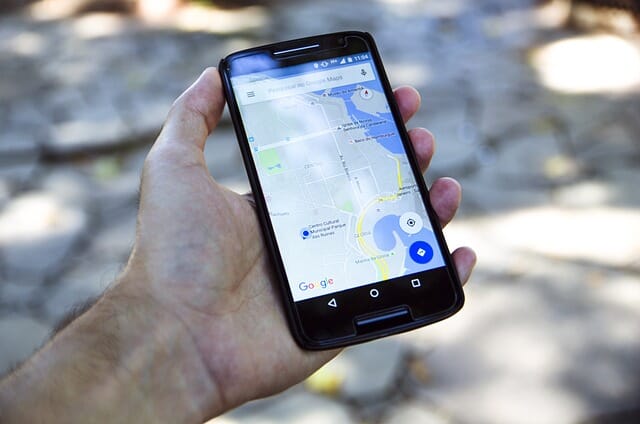
The Future of Caller ID: Embracing Advanced Phone Number Searches
Ah, the age-old dilemma of answering the phone. You hear that dreaded ring, and your heart races as you mentally prepare yourself for an unknown caller. Is it a friend? A telemarketer? Or, heaven forbid, your long-lost aunt who insists on bringing up old family drama? The Future of Caller ID: Embracing Advanced Phone Number Searches in English is not just a catchy phrase; it’s a glimpse into the evolution of how we identify callers and protect our peace of mind.
The Evolution of Caller ID Technology
Remember when caller ID was simply a little box that displayed the number or name of the person calling? That was revolutionary at the time! You could finally screen your calls instead of having to answer every single one like an overzealous customer service representative. Fast forward to today, and technology has come a long way since those simpler times.
Caller ID systems have evolved from basic numeric displays to advanced systems that utilize databases filled with millions—if not billions—of phone numbers. These databases enable us to run quick checks on incoming calls using various methods like reverse phone lookup, which can reveal who is calling you before you even pick up. What was once a simple identification tool is now a sophisticated system designed to enhance user experience and security.
Understanding Reverse Phone Lookup
So what exactly is reverse phone lookup? Imagine you receive a call from an unfamiliar number. Instead of letting curiosity get the best of you, you can utilize an online service that allows you to enter that number into a search bar. In seconds, voilà! You have information about who is calling you. This simple yet powerful tool is becoming increasingly popular as people seek to avoid spam calls or potential scams.
With so many apps and websites dedicated to this service, it's easier than ever for users to embrace advanced phone number searches. Want to know if that strange area code belongs to your new favorite pizza joint or if it’s just another annoying robocall? With just a few clicks, your questions are answered.
Who Is Calling You? The Importance of Identification
The Future of Caller ID: Embracing Advanced Phone Number Searches in English language will also incorporate more than just names and locations; it will involve understanding context. For instance, imagine receiving a call labeled “Potential Spam.” Wouldn’t it be nice if caller ID could provide additional information such as “Robocall” or “Telemarketer”?
This kind of contextual information would not only save us time but also equip us with knowledge about whom we’re dealing with before we engage in conversation—or worse, potentially divulging personal information. As technology continues to advance, we may see algorithms develop that can detect patterns in calling behavior and alert users accordingly.
Spam Calls: The Modern-Day Plague
Ah yes, spam calls—the bane of our existence! They pop up like weeds in a garden despite our best efforts to eliminate them. While traditional caller ID may alert us that an unknown number is calling, advanced phone number searches can provide vital details about whether this call is worth answering.
Tools designed for identifying spam numbers are gaining traction among consumers tired of incessant interruptions. By leveraging user-reported data alongside AI-driven analytics, these tools aim to create safer environments for users by filtering out unwanted calls effectively.
The Rise of AI in Caller ID Systems
Artificial intelligence (AI) is transforming industries left and right—so why should caller ID be any different? Picture this: AI algorithms analyzing calling patterns worldwide and providing real-time insights into who might be on the other end of the line based on historical data!
Imagine receiving a call from someone who shares similar interests with you—a local author whose book you recently reviewed or perhaps even an old friend you've lost touch with. Through intelligent analysis powered by AI, caller IDs will evolve from mere name displays into comprehensive profiles complete with relevant context.
Embracing Privacy Concerns
As exciting as these developments sound, they do raise some eyebrows regarding privacy concerns. Will using advanced phone number searches lead us down a slippery slope where our personal data becomes public domain? Striking a balance between convenience and privacy will be essential as technologies continue advancing.
The future likely holds solutions that allow users control over what information they share while still enjoying enhanced caller identification features. After all, nobody wants their details plastered across some database without consent!
How Will Businesses Adapt?

Businesses must also adapt their communication strategies in light of these advancements in caller identification technology. Imagine if every time someone called your business line; you'd know precisely who they were before picking up! This kind of insight can lead companies toward personalized customer interactions while avoiding unnecessary miscommunications.
Moreover, legitimate businesses will need to ensure they play by the rules—meaning transparency about who they are when contacting potential customers will become paramount as users grow increasingly savvy about identifying spam versus genuine outreach efforts.
The Future Looks Bright
As we stand on the cusp of transformation within telecommunications technology through The Future of Caller ID: Embracing Advanced Phone Number Searches in English language initiatives; there’s no denying it’s an exciting time ahead! From enhanced security measures against scammers through effective identification systems down to smarter algorithms utilizing big data insights—all these factors contribute towards shaping how we engage with one another via telephone communications moving forward.
Now let’s address some frequently asked questions:
What are some common uses for reverse phone lookups?
Reverse phone lookups are commonly used for identifying unknown callers and verifying contact information before returning missed calls. Additionally, they help people determine whether a call is spam or legitimate based on previous reports from other users.
How accurate are advanced phone number search results?
The accuracy largely depends on the database being used for the search along with how often it gets updated. Most Visit this site reputable services strive for high accuracy rates by sourcing their data from reliable providers and user contributions alike.
Are there any legal issues surrounding reverse phone lookups?
Typically speaking, there aren’t any major legal issues surrounding reverse phone lookups as long as they’re used ethically—for example avoiding harassment or stalking behaviors when attempting contact after using such services responsibly.
Will AI replace traditional caller IDs entirely?
While AI will significantly enhance traditional caller IDs by offering richer contextual insights; it's unlikely they'll completely replace them anytime soon—as consumers still value simplicity alongside functionality within their device interfaces!
In short—the future holds great promise for how we identify incoming callers while ensuring both security and privacy remain top priorities throughout this ongoing evolution!